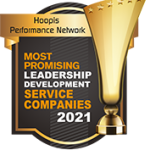Everyone Wins with Mentoring

Let’s admit it – the financial services business can be tough. It requires selling products to individuals who really need them but who often are in denial about this fact. That’s why the two-step preparation process for learning how to become a successful professional in the financial services industry is so important:
1. Educate yourself
Acquire the education and knowledge to build a successful and ongoing practice and to have the confidence to engage prospects and clients in healthy and honest discussions.
2. Educate your prospects and clients.
Develop the sales skills needed to take clients through the process of discovery to recognize their needs and wants and then to take action.
Although we might consider some people to be natural-born salespeople, the reality is
that most sales skills are learned.
We learn these skills primarily through repetition and failure. Repetition is the mother
of all learning; however, learning the necessary skills to be a successful financial service professional can be a long and challenging process. Wouldn’t it be great if there were a shortcut to gaining those skills? There is! Many have found mentoring to be that shortcut.
In fact, according to a survey by the American Society for Training and Development, a remarkable 75 percent of executives say mentoring has been critical to their career development.
What Is a Mentor?

A mentor is an influential senior and trusted counselor or teacher, a person who will help guide someone on his or her path toward achieving goals. Mentoring gives us a brain to pick, an ear to listen to us, and, when needed, a push in the right direction. Mentoring is an effective approach to create, organize, capture and distribute knowledge and demonstrate acquired skills. It supports both short- and long-term growth opportunities for both new associates and veterans.
Even individuals at the top tier of an organization benefit from having a mentor. A survey of small business owners showed that 88 percent agree that having a mentor is invaluable to their success.
Mentoring Shortens the Learning Curve

Mentoring reduces the time it takes to obtain and successfully execute skills, compared with old tried and failed methods. Rapid learning is facilitated by having direct access to a range of experts and peers who can share the required skills in an actual working environment.
Because 80 percent of learning by knowledge transfer is informal, mentoring enables us to acquire skills in a way that other training programs can’t. It shortens the learning curve, enhances productivity, and helps everyone align their efforts with the business strategy. In addition to streamlining the transfer of knowledge, mentoring fuels succession planning to ensure that clients will be taken care of and promises are kept, even if there are staffing changes.
Everyone wins with mentoring!


